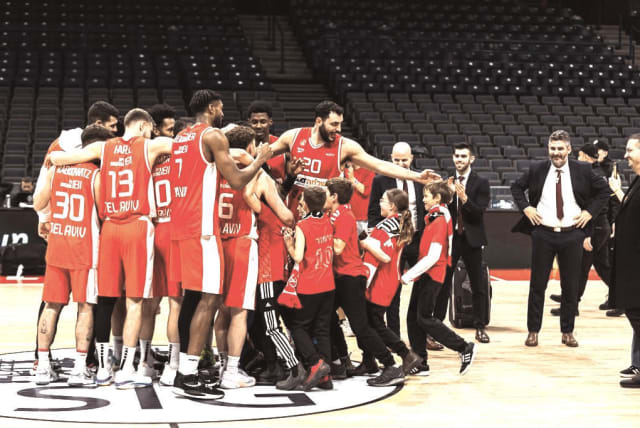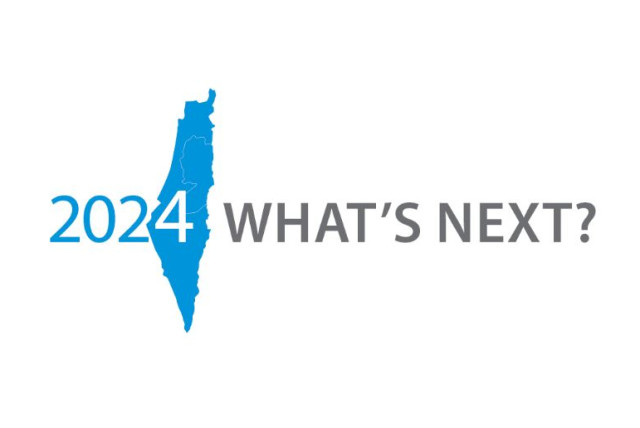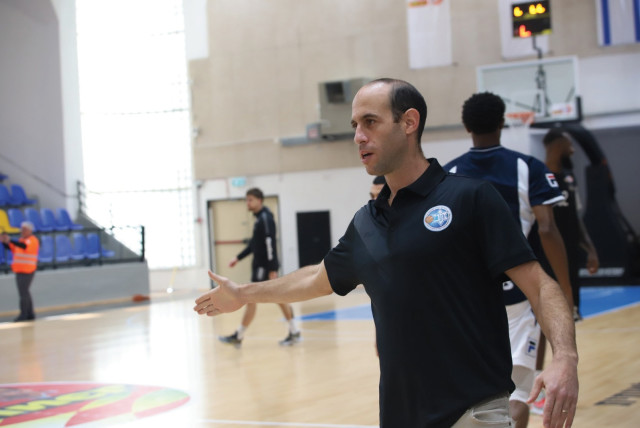Amid Hamas war, Israeli sports in 2024 has a murky outlook

Almost three months since October 7, there are still so many questions with so few answers, and almost all of the sporting disciplines across the country are paying a price.

The “day after” in the Israeli sports world, following the war against Hamas that began when the terrorists attacked the Holy Land from the Gaza Strip, is still as murky as ever.
Almost three months since October 7, there are still so many questions with so few answers, and almost all of the sporting disciplines across the country are paying a price.
From soccer to basketball, to Olympic sports and many more, every athlete, team, and club is feeling the effects of the conflict in one way or another. From severe financial or relegation implications to being displaced, or from dealing with local and continental federations, sports – just like any other industry in Israel – is feeling the impact of the war, not by the day but by the minute.
Constant changes and flexibility have been the name of the game, with some sectors being more resilient than others, but that has always been part of the sports landscape in this country.
What will the Israeli sports scene look like in 2024?
The 2024 Olympic Games will take place in Paris this coming summer. While our athletes will no doubt compete in France, under heavy security, as they have since the 1952 Helsinki Games, being able to top four medals in Tokyo may be quite a stretch.
While the Israeli soccer league has returned to play roughly six weeks after the beginning of the war, Home Front Command has yet to allow stadiums to accommodate fans at full capacity.
When the league first returned to action, there were no fans – a situation that has now incrementally expanded to 15,000 permitted to attend. For some teams like Maccabi Tel Aviv and Maccabi Haifa, that amount cannot accommodate all of their season ticket holders.
On the plus side of the ledger, while the league’s teams will be playing twice a week to make up for the matches that were delayed, the majority of foreign players (and the coach in the case of Robbie Keane at Maccabi Tel Aviv) have all returned to Israel, not something that can be taken for granted.
To date, all the soccer leagues will also feature promotion and relegation, despite some of the challenges that they have had to deal with, which makes sense due to the ability to run a domestic competition at quite a high standard while the war continues to rage on.
In UEFA club competitions, neither Maccabi Tel Aviv nor Maccabi Haifa were allowed to host games in Israel during the group stages of the Conference League and the Europa League, respectively. Serbia has hosted the majority of its matches in empty stadiums just as during COVID-19, which will impact the clubs’ revenues, as well as lower the teams’ chances for advancement.
As for the Israel National Team, it will be participating in the European Championship Playoffs, which will take place in March, for the chance at one of the final places at the UEFA Euro 2024 in Germany this summer.
All in all, soccer seems to be doing fine. However, that is far from the case in the world of basketball, where one challenge after the next seems to be the norm, despite returning to play.
For starters, the four teams playing in the top three European competitions have had to move all their home games abroad, as three teams – Maccabi Tel Aviv, Hapoel Jerusalem, and Hapoel Tel Aviv – are making Belgrade their home, while Hapoel Holon headed to Riga, Latvia. It should be noted that a number of other Israeli teams playing in some of the smaller European competitions were unable to participate, due to ludicrous demands that were made because of the war.
One bright spot has been that quite a few teams are flying groups of up to hundreds of fans – consisting of families and individuals affected by the war – to Serbia or elsewhere to watch their games. These teams include Maccabi Tel Aviv, Hapoel Jerusalem, and Hapoel Holon.
So far, local league play has been for the most part unsportsmanlike, with teams coming into their games at such different levels, from no imports to two to five, and the results have been all over the map.
There have been serious calls throughout all the professional basketball leagues to freeze relegation across the board due to the situation, which also sees some of the coaches in the Premier League and the second division Leumit League serving in the IDF.
To date, those calls have yet to be heeded.
This without a doubt creates an unfair advantage, as the rules of the game in the Leumit League have changed, and they are not allowing any foreign players to play, just Israelis.
YAIR GEWIRTZ, the head coach of second division Ma’ale Adumim, who is serving in the IDF reserves, has felt this tremendously.
“We worked very hard to recruit our foreign players this year. Then the league announced that there would be no foreign players in the lower divisions, but that Ligat Ha’al would still be allowed to have foreigners. For some teams, that mattered more than others. For us, it completely decimated our depth and ability to create a big-man presence.”
So while the entire second- and third-tier leagues are operating with just Israelis, that also comes with a price.
“We do have good Israeli players, but they are mostly guards, and we were relying on our non-Israeli big men to make a playoff push this season.”
There has been fierce competition for the available Israeli players, which has naturally raised the price they can command. Many teams already had a fixed budget that was allocated to players they had committed to.
“I understand that they wanted to take out foreign players and level the playing field, so to speak, with the war and also have a season,” noted Gewirtz.
“I am all for that. But the league administration also has to understand the circumstances involving the teams. I am the head coach of a team, and I have been fighting in the IDF almost since day one of the war. Other teams as well have been greatly affected by the war, while other teams much less so.
“I have missed basically all my team’s practices and am coming straight from my army base to games when I can. The competitiveness and sportsmanship throughout the league have been heavily altered due to the war, and I think the league should be addressing this.”
Yair’s father, Danny Gewirtz, was much more straight and to the point.
“Not only is it outrageous that the Leumit League is behaving as if there isn’t a war going on, but it’s doubly outrageous that my son has to worry that his team will be relegated when he should be 100% focused on his extremely dangerous reserve duty.”
The leagues contend that without relegation and promotion being an incentive, the games will lose even more of their competitive nature. But the situation is complex and still unfolding.
Sports, just like any other realm of Israeli society, will have to deal with these challenges not only in 2024 but well beyond, as the ripple effect of the war may be felt for the next decade. ■
Jerusalem Post Store
`; document.getElementById("linkPremium").innerHTML = cont; var divWithLink = document.getElementById("premium-link"); if (divWithLink !== null && divWithLink !== 'undefined') { divWithLink.style.border = "solid 1px #cb0f3e"; divWithLink.style.textAlign = "center"; divWithLink.style.marginBottom = "15px"; divWithLink.style.marginTop = "15px"; divWithLink.style.width = "100%"; divWithLink.style.backgroundColor = "#122952"; divWithLink.style.color = "#ffffff"; divWithLink.style.lineHeight = "1.5"; } } (function (v, i) { });

